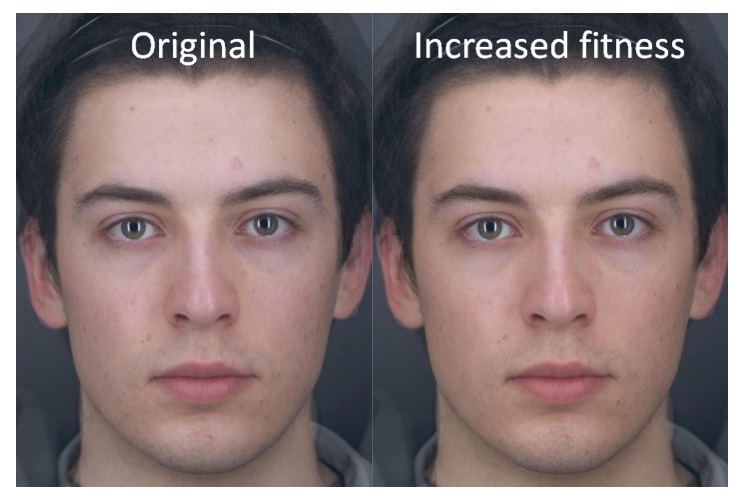Healthy living gives skin a golden glow
 A healthy lifestyle significantly improves a person’s skin colour, according to new research led by the University of St Andrews.
A healthy lifestyle significantly improves a person’s skin colour, according to new research led by the University of St Andrews.
The research, led by the School of Psychology and Neuroscience at the University of St Andrews and published in the journal Frontiers in Psychology (Wednesday 11 March), reveals that a balanced and healthy lifestyle, including becoming fitter, avoiding stress and sleeping longer, all impart a healthy-looking golden skin colour.
Previous studies link improvements in skin colour to a good diet, however it was not known if skin colour is a more general cue to health beyond its association with diet. The current study focused on other aspects of a healthy lifestyle and how this impacts positively on skin colour.
Eating a healthy diet full of fruit and vegetables increases skin yellowness, making the skin look healthier and more attractive. The colour change is due to the accumulation of coloured plant pigments in the skin such as orange carotene from carrots and red lycopene from tomatoes. These pigments, called carotenoids, play an important role as antioxidants. Stresses and strains of everyday life produce oxidative toxins that damage DNA and proteins. Antioxidants such as carotenoids protect against damage by neutralising the toxins, however antioxidants are used up in the neutralising process.
Exercise boosts the body’s own antioxidant systems which may spare the carotenoid pigments so that they can accumulate in the skin. Other aspects of health such as losing excess body fat, reducing mental stress, and better quality, longer sleep may decrease the production of oxidative toxins thereby sparing the skin carotenoids. Skin yellowness could be an indicator of a person’s health by demonstrating that the body has enough antioxidant reserves and low levels of oxidative toxins.
Lead scientist for the study, Professor David Perrett, from the School of Psychology and Neuroscience, said: “We worked with 134 students measuring fitness from heart rate while walking and running on a treadmill. We assessed body fat levels with an impedance meter much like that available on many bathroom weighing scales. We measured skin colour with a device that records how a rainbow of colours is reflected from the skin. We found that both high fitness and low body fat were associated with a higher skin yellowness. This yellower skin of fit individuals was not due to a better diet or from a suntan from being outdoors more.”
To take the study further, the research team assessed whether a change in health changed skin appearance. The researchers followed 59 students from sports clubs to measure the impact of their training on their overall skin appearance. Those that increased in fitness or lost body fat showed an increase in skin yellowness. Questionnaires showed that increased psychological stress and a loss of sleep were also associated with a reduction in skin yellowness. Skin colour change was not due to training outdoors or increased suntan because health was unrelated to skin lightness change.
Professor Perrett added: “We wanted to know whether the skin colour change looked healthy. We simulated the colour change in face images keeping everything else such as expression constant. For 21 observers we found the change in colour with increased fitness was visible and was judged as looking healthier on 90% of trials. This means that as people get healthier others should be able to notice the improvement in skin colour.
“We were surprised to find that the skin colour changes accompanying change in health occurred quite quickly and within eight weeks. This means that any effort to improve lifestyle will benefit appearance within a relatively short time.”
Given the effect of skin colour on attractiveness, the research findings may help motivate people to follow healthier lifestyles such as exercising frequently, avoiding excess calorie intake and undue stress, and adopting good sleep habits. All these lifestyle factors, in addition to eating more fruit and vegetables, induce an attractive golden glow to the skin.
Category Research